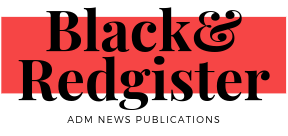Controversial Education Bill Passes The Iowa House of Representatives
If Iowa Senate File 496 gets passed, the book selection at Iowa schools will be significantly reduced. Classroom and school libraries are expected to remove any book from the premises if they include “non-age appropriate” topics. All books with sexual acts will be removed and the bill states that committees must be formed to see what books can be read by students.
For a bill to become law, America requires it to go through many stages. It must be drafted, reviewed by a council, then debated, and possibly changed by that council. The debated bill is then sent to either the Senate or the House of Representatives and waits to be approved by both chambers. If after all of that, both groups agree to pass the bill, it must get signed by either the president or governor based on its significance. In the beginning of 2023, a new education bill was introduced that would increase parental abilities, but controversially decrease the rights of Iowa students. The bill in discussion is the Iowa Senate File 496. The goal of this bill is to give parents more involvement in the lives of their children while they are in school. This bill covers many things, but the biggest topics involve LGBTQ students and the topic of sex in school.
The file would change the way schools address sex education in health classes. Originally, Iowa law stated that schools must teach students one time about the availability of the HPV vaccination and the danger of AIDS/HIV between the grades of 1-12. The new bill redacts this statement and claims that this, and a good deal of other health related subjects, can only be taught after 6th grade. These young students are not only prohibited from these subjects, but they can not receive any education that involves the life of an LGBTQ individual.
The bill requires faculty of Iowa schools to report to parents if they believe a student intends to identify in a way different from their sex assigned at birth. If a faculty member does not do so, they are met with a warning, then a disciplinary hearing and finally, the possibility of suspension or expulsion. LGBTQ students will not be allowed to receive accommodations involving things like pronouns and changed names unless a licensed practitioner signs off on it and the guardians agree.
If the bill is passed, any book or education tool in the school district that is barred “non-age appropriate” will be removed from the premises. According to the bill, age-appropriate means “topics, messages, and teaching methods suitable to particular ages or age groups of children and adolescents, based on developing cognitive, emotional, and behavioral capacity typical for the age or age group”. They state that “age-appropriate does not include any material with descriptions or visual depictions of a sex act.” Schools will have to remove any books from the premises if they involve a sex act or gender identity, regardless of the age of the reader or the books’ other content. Members possessing these tools may be subject to discipline. Iowa students will also not be able to join the committee that decides the “appropriateness” of a book, while guardians are encouraged to contact administrators if they feel any tool requires censorship.
The purpose of this bill gives peace of mind to many Iowa guardians because of the new shift in power. The bill claims “a parent or guardian bears the ultimate responsibility, and has the fundamental, constitutionally protected right to make decisions affecting the parents or guardian’s minor child, including decisions related to the minor child’s medical care, moral upbringing, religious upbringing, residence, education, and extracurricular activities.” According to an emailed statement in a Des Moines Register article, Governor Kim Reynolds favors the ideas in the bill. “Parents are the ultimate decision-makers for their children. This legislation defines parents’ rights in law, requires transparency, and sets boundaries to protect Iowa’s children from woke indoctrination. I will always fight for Iowa’s parents as they know what is best for their children.”
Students are reacting quite differently than parents to the proposed law. Students across Iowa have been organizing walkouts at their schools, a LGBTQ rights protest took place at the capital and high school seniors being honored at the Iowa Governor’s Scholar Program shared their opinions on stage by wearing t-shirts and pins.
The bill has already faced some set-back on its legislative journey. It was originally introduced on March 2nd of 2023, but has been heavily debated and passed back and forth between the Senate and the House. The bill was finally passed through the House on April 4th of 2023. Now, it must wait for the governor’s signature before it can become law. If this happens, the bulk of the law will take effect on July 1st, 2023.
Greg Defoe, superintendent of the ADM school district, believes that the bill will require a lot of change if it is passed. “When [the governor signs the bill,] it will trigger guidance out to schools. Typically, we receive hefty guidance based on all the legislative changes, sometime in the summer, from the Department of Ed. The Department of Education will be tasked with creating rules and guidance around any legislative changes that the schools have to abide by,” he shared. “I think there’ll be a lot of things we’ll have to pay attention to because of the new legislative changes, like identifying books that by code won’t be allowed anymore. That kind of thing will take some time, so we’re really going to have to sift through that.” Defoe is waiting for the bill to pass before he begins making adjustments to the district.
Despite anyone’s opinion on the bill, one fact remains sure. If the Iowa Senate File 496 gets signed by the governor, Iowa schools will be making significant changes.







